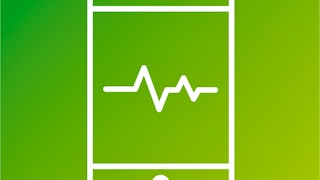- Browse
- Health Economics
Health Economics Courses
Health economics courses can help you learn cost-effectiveness analysis, health policy evaluation, and the economic impact of healthcare interventions. You can build skills in data analysis, budget forecasting, and understanding healthcare financing models. Many courses introduce tools like statistical software for analyzing health data and economic modeling techniques to assess the efficiency of healthcare programs.
Popular Health Economics Courses and Certifications
 Status: PreviewPreviewU
Status: PreviewPreviewUUniversity of Geneva
Skills you'll gain: Substance Abuse, Social Justice, Health Care, Pharmacology, Public Health, Health Policy, Healthcare Ethics, Public Policies, Policy Analysis, Community Health, Legal Risk, Advocacy, International Relations, Policy Development
4.8·Rating, 4.8 out of 5 stars273 reviewsBeginner · Course · 1 - 3 Months
 Status: Free TrialFree TrialT
Status: Free TrialFree TrialTThe State University of New York
Skills you'll gain: Persuasive Communication, Emergency Response, Conflict Management, Patient Communication, Crisis Intervention, Leadership, Collaboration, Teamwork, Interviewing Skills, Safety and Security, Hazard Communication (HazCom), Communication, Cultural Sensitivity, Risk Management, Social Determinants Of Health, Cultural Diversity, Media and Communications, Interpersonal Communications, Verbal Communication Skills, Public Health
4.7·Rating, 4.7 out of 5 stars287 reviewsBeginner · Specialization · 1 - 3 Months
 Status: NewNewStatus: Free TrialFree TrialA
Status: NewNewStatus: Free TrialFree TrialAAmerican Council on Exercise
Skills you'll gain: Mental Health, Mindfulness, Nutrition and Diet, Mental Concentration, Community Health, Preventative Care, Health And Wellness Coaching, Health Education, Behavioral Health, Stress Management, Clinical Nutrition, Exercise Science, Respiration, Physiology
4.6·Rating, 4.6 out of 5 stars8 reviewsIntermediate · Course · 1 - 3 Months
 Status: Free TrialFree TrialC
Status: Free TrialFree TrialCCVS Health
Skills you'll gain: Active Listening, De-escalation Techniques, Greeting Customers, Customer Service, Empathy, Cross Selling, Call Center Experience, Transaction Processing, Upselling, Retail Sales, Retail Store Operations, Customer Complaint Resolution, Cash Register Operation, Problem Solving, Conflict Management, Customer Inquiries, Teamwork, Data Entry, Communication, Time Management
4.6·Rating, 4.6 out of 5 stars416 reviewsBeginner · Professional Certificate · 3 - 6 Months
 Status: Free TrialFree TrialI
Status: Free TrialFree TrialIImperial College London
Skills you'll gain: Agile Methodology, Health Care Procedure and Regulation, Health Technology, Data Ethics, User Centered Design, Technology Strategies, Health Informatics, Health Policy, Regulatory Compliance, Data Security, Healthcare Ethics, Strategic Thinking
4.6·Rating, 4.6 out of 5 stars79 reviewsIntermediate · Course · 1 - 4 Weeks
 Status: Free TrialFree TrialU
Status: Free TrialFree TrialUUniversity of Maryland, College Park
Skills you'll gain: Public Health, Health Care Administration, Crisis Intervention, Leadership, Health Disparities, Diversity Equity and Inclusion Initiatives, Community Health, Emergency Response, Decisiveness, Adaptability, Communication
Beginner · Course · 1 - 3 Months
 Status: Free TrialFree TrialI
Status: Free TrialFree TrialIImperial College London
Skills you'll gain: Biostatistics, Statistical Analysis, R (Software), R Programming, Statistical Methods, Data Wrangling, Regression Analysis, Exploratory Data Analysis, Time Series Analysis and Forecasting, Logistic Regression, Probability & Statistics, Descriptive Statistics, Model Evaluation, Public Health
4.5·Rating, 4.5 out of 5 stars331 reviewsIntermediate · Course · 1 - 4 Weeks
 Status: Free TrialFree TrialU
Status: Free TrialFree TrialUUniversity of Maryland, College Park
Skills you'll gain: Health Informatics, Public Health, Health Policy, Health Care Administration, Clinical Leadership, Informatics, Health Care, Health Systems, Data Integration, Health Technology, Data Analysis Software, Interoperability
Beginner · Course · 1 - 4 Weeks
 Status: Free TrialFree TrialU
Status: Free TrialFree TrialUUniversity of Illinois Urbana-Champaign
Skills you'll gain: Nutritional Assessment, Health Assessment, Diagnostic Tests, Physiology, Endocrinology, Biochemistry, Laboratory Testing, Pathology, Nutrition and Diet, Clinical Nutrition, Life Sciences, Biology, Systems Analysis, Molecular Biology
Intermediate · Course · 1 - 4 Weeks
 Status: PreviewPreviewU
Status: PreviewPreviewUUniversity of Illinois Urbana-Champaign
Skills you'll gain: Infectious Diseases, Epidemiology, Nutrition and Diet, Food Safety and Sanitation, Public Health and Disease Prevention, Physiology, Sustainable Systems, Immunology, Biology, Microbiology, Caregiving, Environment and Resource Management
4.8·Rating, 4.8 out of 5 stars627 reviewsBeginner · Course · 1 - 3 Months
 Status: Free TrialFree TrialI
Status: Free TrialFree TrialIImperial College London
Skills you'll gain: Public Health, Community Health, Health Policy, Health Equity, Health Promotion, Social Determinants Of Health, Social Justice, Cultural Responsiveness, Qualitative Research, Program Evaluation, Research Methodologies, Collaboration
4.5·Rating, 4.5 out of 5 stars12 reviewsBeginner · Course · 1 - 4 Weeks
 Status: Free TrialFree TrialD
Status: Free TrialFree TrialDDuke University
Skills you'll gain: Climate Change Adaptation, Health Disparities, Health Equity, Environmental Issue, Advocacy, Social Determinants Of Health, Environmental Science, Health Education, Community Health, Resilience, Adaptability, Collaboration, Health Care, Public Health, Health Systems, Climate Change Mitigation, Sustainable Systems, Patient Communication, Healthcare Industry Knowledge, Leadership Development
Beginner · Course · 1 - 4 Weeks
Searches related to health economics
In summary, here are 10 of our most popular health economics courses
- Drugs, drug use, drug policy and health : University of Geneva
- Leadership for Public Health Crises: The State University of New York
- A Holistic Approach to Mental Health: American Council on Exercise
- CVS Health Retail Customer Service: CVS Health
- Design and Implementation of Digital Health Interventions : Imperial College London
- Public Health Leadership: Leadership in Crisis: University of Maryland, College Park
- Survival Analysis in R for Public Health: Imperial College London
- Applied Public Health Informatics for Leaders: University of Maryland, College Park
- Dairy Nutrition & Health: Analyzing Cow Wellness: University of Illinois Urbana-Champaign
- Sustainable Food Production Through Livestock Health Management: University of Illinois Urbana-Champaign










